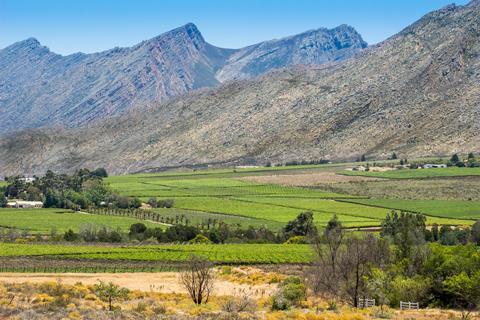With export markets already diverse, agricultural produce will likely expand in the coming years – mainly due to previously underutilised land

This year has been one of mixed fortunes for the South African agricultural business.
The mid-summer El Niño-induced drought that negatively impacted summer crops, ongoing animal disease woes, the seemingly endless logistical crisis, high interest rates and uncertainty about the national government all weighed heavily on the sector.
Now, according to John Hudson, head of agriculture at Nedbank Commercial Banking, sentiment is improving.
Hudson, in an article published by the Pals Group, a leading transformation organisation in South Africa, said the Agbiz/IDC Agribusiness Confidence Index (ACI) for the third quarter of 2024 rose by 10 points, indicating a growing sense of optimism.
This was despite the fact that many of the challenges experienced earlier in the year are still present, he noted.
“The Government of National Unity (GNU) has brought new energy to the sector and there is a commitment to the implementation of the Agriculture and Agro-processing Master Plan (AAMP),” Hudson explained.
“Importantly, the government is prioritising the diversification of export markets for South African agricultural produce.
“Our agricultural sector is heavily reliant on exports, with half (by value) of agri produce being exported,” he continued.
“While our export markets are already diverse, agricultural produce will likely expand in the coming years, mainly due to previously underused land.
”That’s why it’s vital that the expanded BRICS member nations be pursued as additional agricultural export markets – particularly China, India, Saudi Arabia and Egypt.”
Despite the consistent increase in volumes of agricultural goods – which may taper off this year due to decreased production caused by the summer drought – there are two factors that present a challenge for South African goods, he said. These are logistics and an increasing focus on sustainability.
“Despite our world-class production, logistics remain our Achilles heel,” Hudson outlined. ”It is making our products less competitive during a time when an increasing global focus on sustainability – and, thus, increasing carbon taxes – has the potential to trip us up.”
One exciting development in the agricultural sector was the equitable distribution of land to previously marginalised communities, he said.
“There is now – after the lack of clarity caused by the land expropriation without compensation debate, which negatively impacted investment perceptions in the sector – a push from the government to strengthen property rights, eliminating the issue of title deeds as a threat.”
Going forward, the focus will be on where land will come from, like the soon-to-be-released 2.4mn hectares of government-owned land, and selecting the right beneficiaries for that land.
This will be a major step towards eliminating the divide that has burdened South African agriculture historically.



